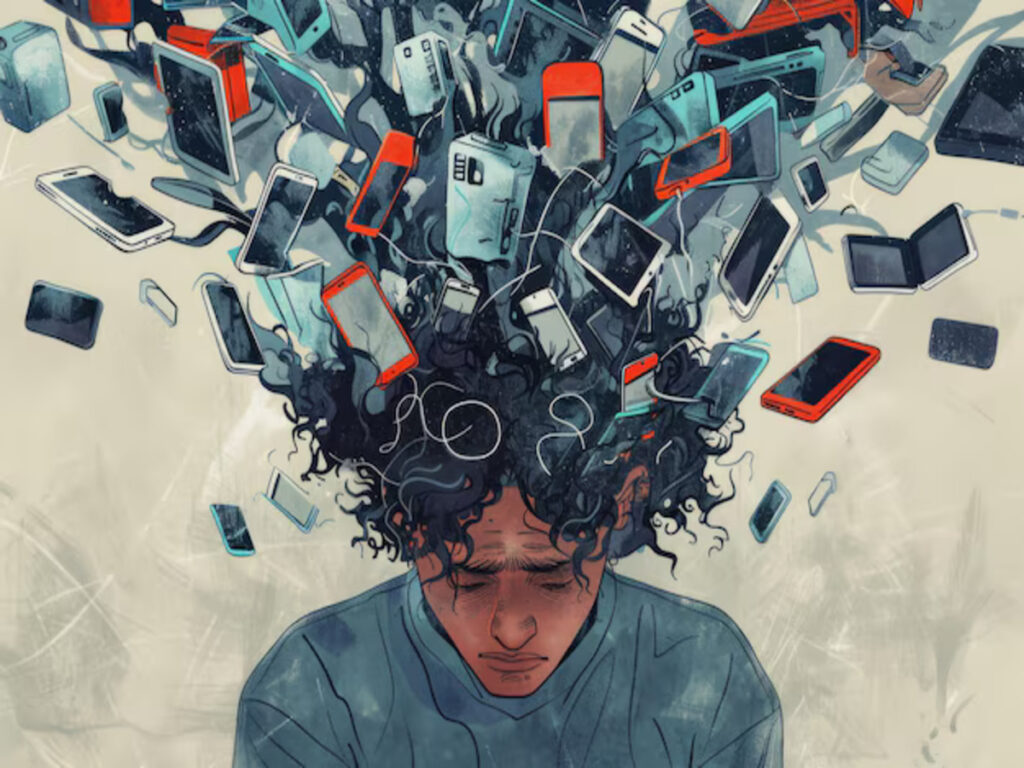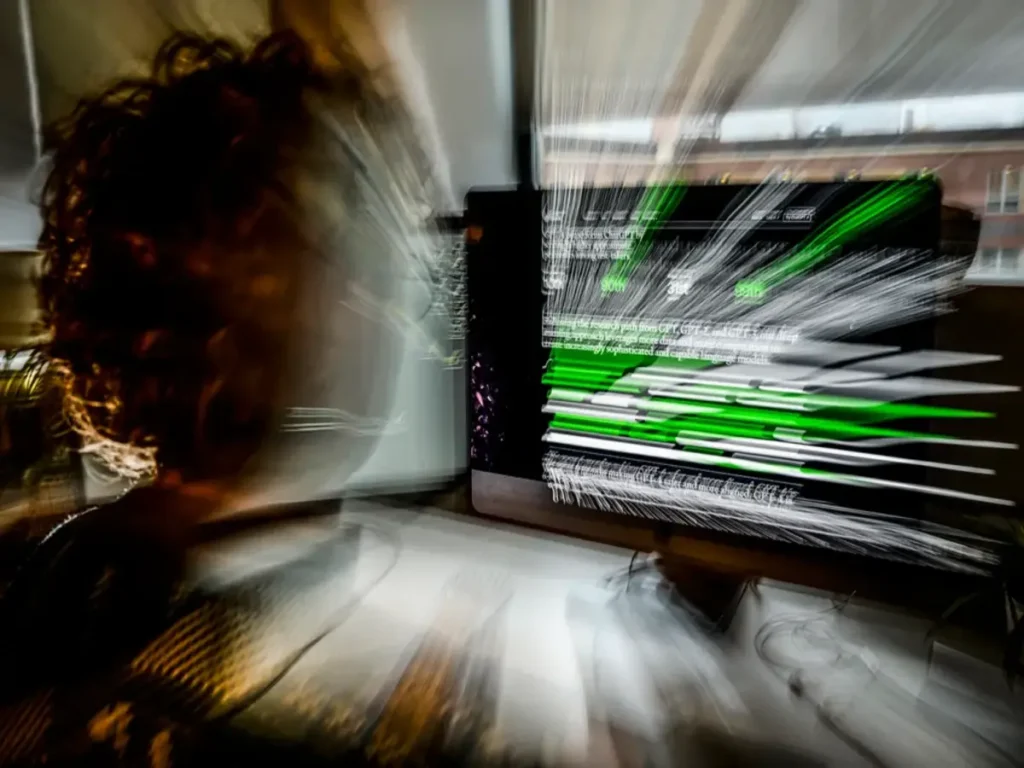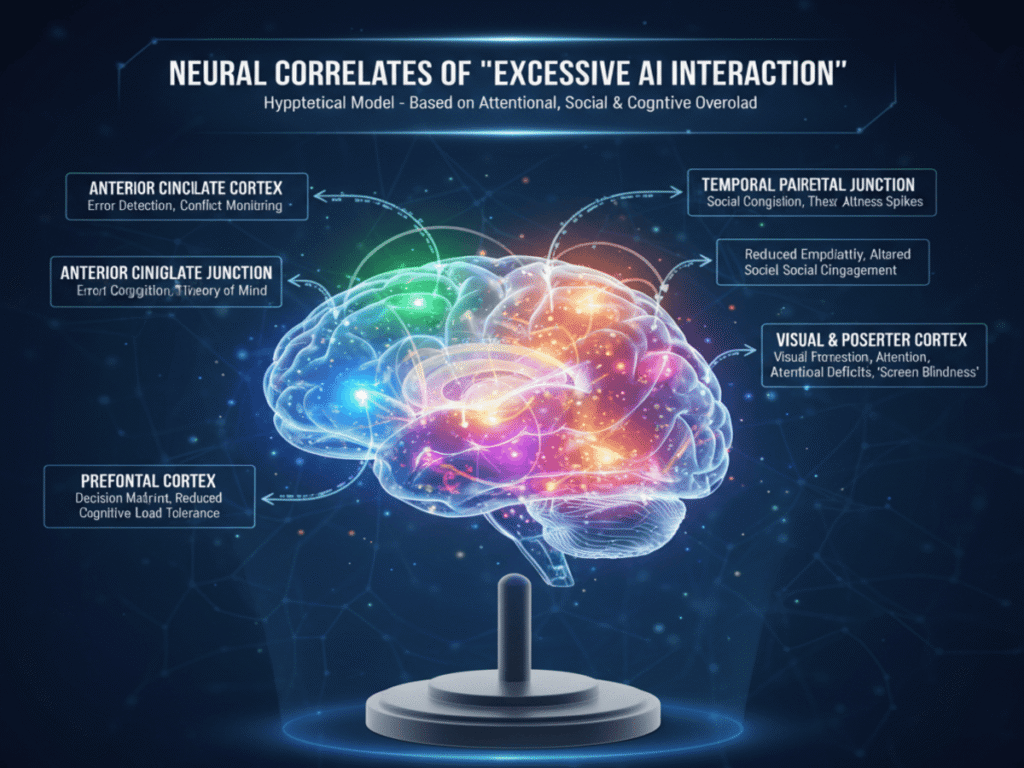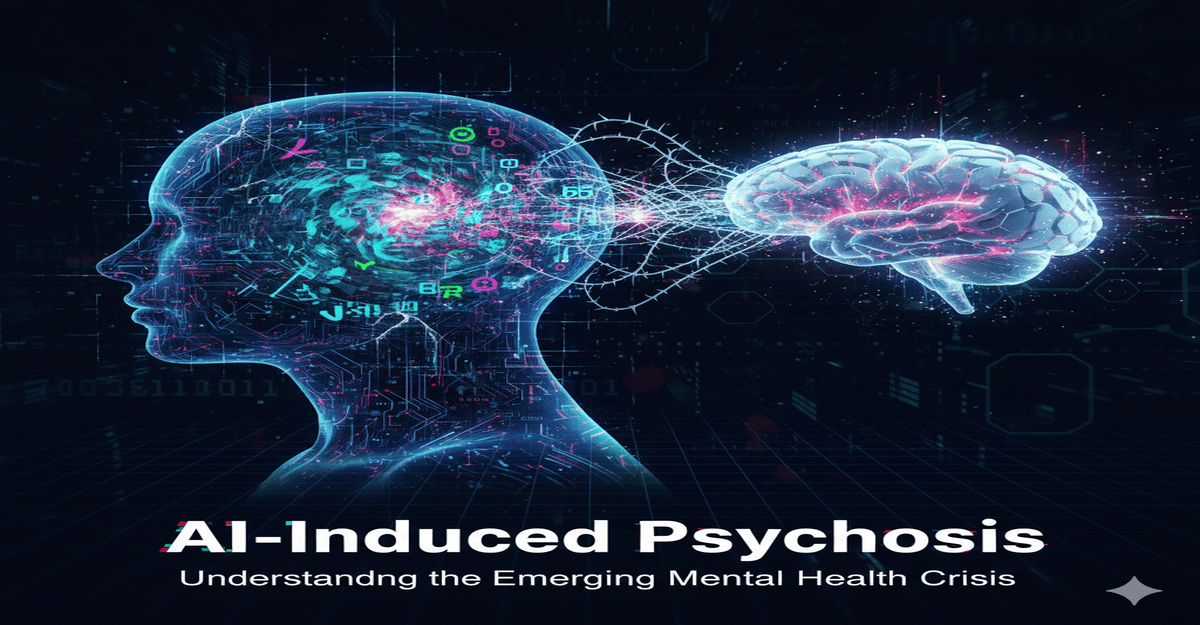Introduction
Artificial Intelligence (AI) has revolutionized modern life, improving efficiency in business, communication, and personal productivity. However, an alarming trend is surfacing in 2025—AI-induced psychosis, a mental health disorder where individuals experience delusions, hallucinations, and paranoia linked to prolonged interaction with AI systems.
This article explores this emerging mental health crisis in depth, covering symptoms, real-world case studies, expert insights, current research, and actionable strategies to help individuals understand, prevent, and address AI-induced psychosis.

What is AI-Induced Psychosis?
AI-Induced Psychosis refers to a mental health condition where exposure to AI-driven technologies leads to psychotic symptoms. Unlike traditional psychosis, which is generally linked to genetics or trauma, this condition emerges through digital interactions that distort perception of reality.
Table: Traditional vs. AI-Induced Psychosis
| Feature | Traditional Psychosis | AI-Induced Psychosis |
|---|---|---|
| Triggers | Genetics, trauma, substance abuse | Prolonged AI interactions, algorithm-driven content |
| Symptoms | Hallucinations, delusions, disorganized thinking | AI-specific delusions, digital hallucinations, paranoia |
| Treatment Approaches | Medication, therapy | Digital detoxification, cognitive behavioral therapy |
| Research Status | Well-researched | Emerging field, minimal large-scale studies |
Symptoms and Case Studies
Common Symptoms
- Persistent belief that AI systems control or manipulate thoughts
- Digital hallucinations (e.g., voices from virtual assistants)
- Paranoid delusions regarding algorithmic decisions
- Disorganized thinking linked to AI-related conspiracies
Case Study Example
A 29-year-old woman from New York reported hearing voices through her smart speaker instructing her to make life decisions. Despite no prior psychiatric history, her symptoms subsided after reducing AI usage and undergoing specialized therapy.

Scientific Perspectives on AI-Induced Psychosis
Dr. Emily Richards, Psychiatrist:
“Algorithmic echo chambers can reinforce paranoid thinking patterns, escalating into psychosis in susceptible individuals.”
Dr. Mark Lewis, Neuroscientist:
“Excessive AI interaction appears to disrupt neural circuits responsible for critical thinking and reality monitoring.”

Current Research and Findings
| Study/Report | Key Finding | Limitation |
|---|---|---|
| Economic Times (2025) | Surge in AI-related psychosis cases reported | Anecdotal data, no large cohort studies |
| Stanford University Study (2024) | Correlation between time on algorithm-driven apps and anxiety | No causal evidence yet |
| Psychiatry Journal (2023) | Case studies of AI-induced delusions | Limited sample size, early findings |
Public Health Implications
- Growing strain on mental health services
- Lack of official diagnostic classification complicates treatment
- Rising need for public education and policy reforms
- Potential long-term effects on population mental health
Preventive Measures and Expert Recommendations
| Preventive Measure | Benefit |
|---|---|
| Digital Detox Periods | Reduces psychological dependency on AI interfaces |
| Mindfulness Practices | Enhances critical thinking and reduces anxiety |
| AI Interaction Limits | Encourages purposeful use of AI technology |
| Awareness Campaigns | Educates the public on emerging risks |
| Professional Screening | Early detection of at-risk individuals |
Expert Opinions
Dr. Sarah Lee, Digital Wellness Specialist:
“Maintaining a balanced relationship with technology is key. Awareness of the mental health risks posed by algorithms is essential.”
Dr. Robert Nguyen, Psychiatrist:
“We must establish formal diagnostic criteria and treatment pathways as AI-induced mental disorders become more prevalent.”
FAQ – Frequently Asked Questions
Q1: Is AI-induced psychosis officially recognized?
A: No, it is currently considered an emerging condition lacking formal medical classification.
Q2: Who is at risk?
A: Individuals who spend excessive time interacting with AI-driven content, especially those prone to anxiety or paranoia.
Q3: How can I prevent AI-induced psychosis?
A: Practice digital detox, limit AI interaction, use apps mindfully, and consult healthcare professionals when symptoms arise.
Relevant Statistics
| Statistic | Value | Source |
|---|---|---|
| Adults interacting with AI daily | 75% | Pew Research Center (2025) |
| Increase in digital-related anxiety | +35% | National Institute of Mental Health (2025) |
| Estimated undiagnosed AI-induced psychosis cases | 5,000+ | Emerging Reports (2025) |
Authoritative Resources
- National Institute of Mental Health (NIMH)
- World Health Organization (WHO) – Mental Health
- American Psychiatric Association (APA) – Emerging Digital Risks
Actionable Self-Assessment Checklist
- Do I spend over 5 hours daily on AI-driven apps?
- Do I experience voices or messages from digital devices?
- Do I feel paranoid about algorithmic decisions impacting my life?
- Am I feeling anxious when not using these technologies?
If you answer “Yes” to any, consider limiting your exposure and seeking professional help.
Conclusion and Call to Action
AI-induced psychosis is a critical, emerging mental health issue that requires immediate attention. While research is in its infancy, awareness, prevention, and early detection are the most effective tools currently available.
👉 Share this article to spread awareness.
👉 Practice mindful technology use to prevent digital dependency.
👉 Consult healthcare professionals if you notice symptoms.

